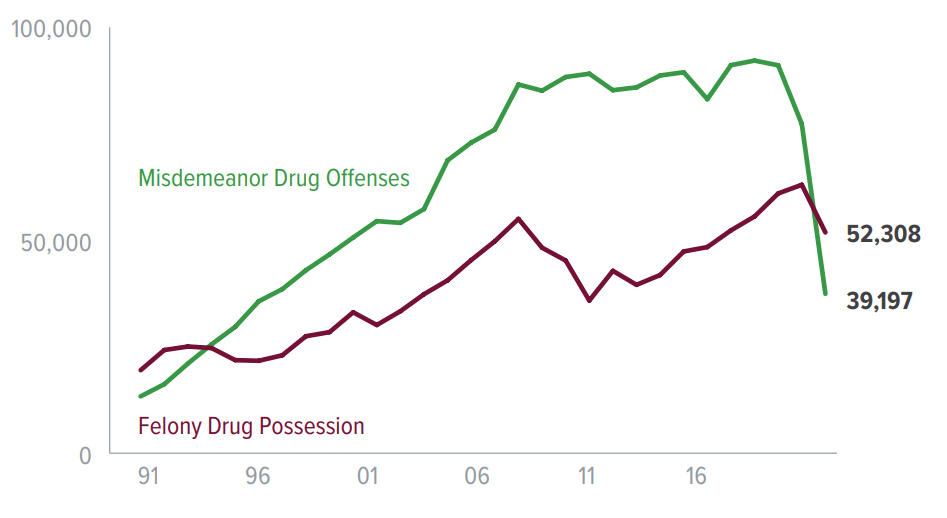From the Office of Court Administration's 2020 annual statistical report, here's how that impacted marijuana prosecution in Texas:
In 2018, by contrast, there were 87,618 misdemeanor drug cases in 2018. That's a 55% drop from before the new testing requirement was implemented.
Marijuana has been one of the most common charges Texans are arrested for in recent years. In 2020, though, more people were arrested for Class C misdemeanors at traffic stops (41,731) than were prosecuted for marijuana possession.
Polling consistently shows most Texans favor full-blown legalization of marijuana for recreational use, and an even greater number endorse more widespread legalization of medical cannabis. So for the average Texan, it's a big yawn. They wouldn't care if that 39,000 number dropped to zero.
For the system, though, it's a big deal. Drug arrests gave 80,000 cops across Texas at more than 2,000 agencies something to do when crime declined but cities kept hiring more of them. From the 2018 OCA Statistical Report:
In 2020, by contrast, drug cases' contribution to misdemeanor caseloads had dropped from first to third in the prosecutorial pecking order on the misdemeanor side, replaced after DWI by "assault."So when police and prosecutors reduced emphasis on marijuana prosecution, the result was an increased focus on violent crime as a proportion of how they spend their time. This seems like an outcome most Texans would support.




.jpg)
No comments:
Post a Comment